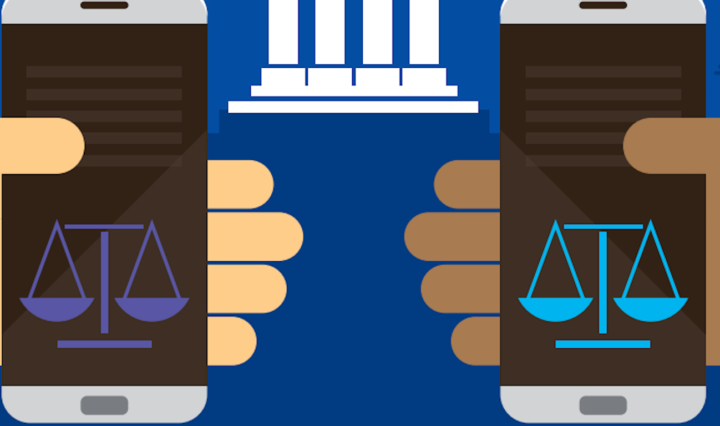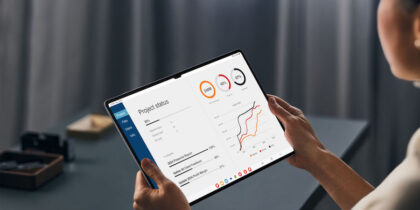The notoriously document-heavy legal field is trimming down the paperwork and getting a lot of help from technology. A recent International Legal Technology Association (ILTA) InsideLegal Purchasing Survey revealed that 53 percent of respondents reported increased budgets for legal tech — a 12 percent increase from 2015. Lawyers are excited about a wide range of new technologies, including cloud, artificial intelligence and even virtual reality.
The ILTA survey also found widespread use of mobile technology in the legal industry: 68 percent of legal firms provide their employees with smartphones, and 52 percent provide employees with tablets. The use of cloud computing, especially for storing files and data, allows lawyers to access information on the fly anytime, anywhere. Increasingly, the legal profession is becoming paperless, and legal apps are making it possible.
Legal Tech Gives Firms a Productivity Boost
Legal tech apps make the business of law a lot easier, taking the legwork out of routine tasks in areas such as case management, dictation and legal research, and driving down the costs of employing legal assistants for mundane work. Examples of the wide range of legal apps that are available for automating legal tech include online collaboration app TeamViewer, which allows users to remotely access their computer and work with colleagues from anywhere, the instant messaging app IM+, and DroidLaw for legal research. File-sharing apps such as FileCloud, which works across all devices and is specifically designed for lawyers, are also becoming increasingly popular.
Ninety-one percent of lawyers state that using mobile devices at work has led to improvements in productivity, with email being the primary driver of smartphone and tablet use. Mobile apps that make communication easier not only help with internal collaboration and productivity, but they also allow lawyers to better service demanding clients and have instant access to legal research and client data, enabling them to make better informed legal decisions more easily.
Mobile security is crucial for law firms.
This infographic details five mobile security tactics firms should implement. Download Now
Security Remains a Serious Issue for Mobile Devices
Despite the many benefits to the legal industry, technology has its drawbacks. Mobile devices can easily be lost or stolen, and legal firms can lose control of sensitive information that lawyers store in the cloud, especially if they’re using file-sharing services that haven’t been officially sanctioned by the firm. Therefore, it’s essential that the use of mobile devices is done in a controlled manner and accompanied by a strong mobile device policy.
Data security is especially important, as the extremely sensitive nature of legal documents makes them a target for cybercriminals. According to Bloomberg Businessweek, cybersecurity firm Mandiant reports that 80 of the largest 100 law firms by revenue in the U.S. have been hacked since 2011. For many legal firms, allowing employees to use their own devices isn’t a viable strategy, as firms have less control over the security of those devices. But when a law firm does follow a BYOD policy, the best option is to allow employees to choose from a limited range of mobile devices that have high levels of security built into them, such as those that support Samsung Knox. Devices should also provide separate containers to keep business and personal information separate, with all business information encrypted.
Mobile devices and innovative new mobile apps boost productivity in law firms by providing flexibility and the ability to automate mundane tasks to reduce costs. Ensuring adequate mobile security continues to be critical due to the highly sensitive nature of legal data and the serious repercussions that could result from a data breach.
Stay ahead of the latest legal tech trends by checking out our full line of legal technology solutions.






